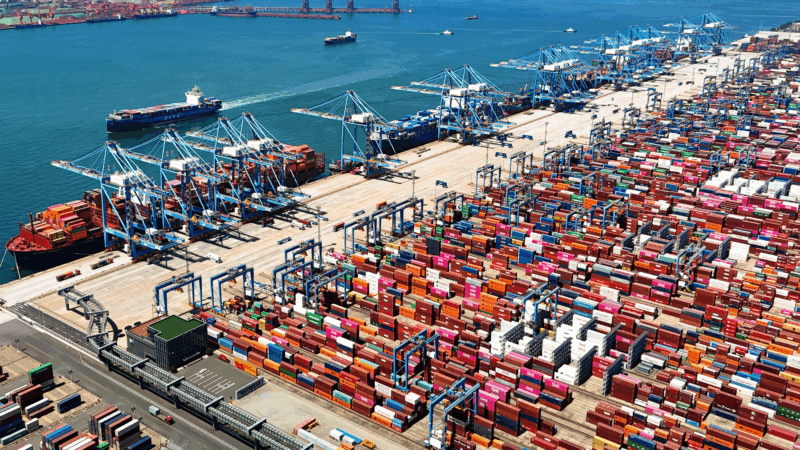China vows to stand firm against Trump’s 100% tariff threat
BEIJING — China signaled Sunday that it would not back down in the face of a 100% tariff threat from President Donald Trump, urging the U.S. to resolve differences through negotiations instead of threats.
“China’s stance is consistent,” the Commerce Ministry said in a statement posted online. “We do not want a tariff war but we are not afraid of one.”
It was China’s first official comment on Trump’s threat to jack up the tax on imports from China by Nov. 1 in response to new Chinese restrictions on the export of rare earths, which are vital to a wide range of consumer and military products.
The back and forth threatens to derail a possible meeting between Trump and Chinese leader Xi Jinping and end a truce in a trade war in which new tariffs from both sides briefly topped 100% in April.
Trump has raised taxes on imports from many U.S. trading partners since taking office in January, seeking to win concessions. China has been one of the few countries that hasn’t backed down, relying on its economic clout.
“Frequently resorting to the threat of high tariffs is not the correct way to get along with China,” the Commerce Ministry said in its post, which was presented as a series of answers from an unnamed spokesperson to four questions from unspecified media outlets.
The statement called for addressing any concerns through dialogue.
“If the U.S. side obstinately insists on its practice, China will be sure to resolutely take corresponding measures to safeguard its legitimate rights and interests,” the post said.
In addition to the 100% tariff, Trump threatened to impose export controls on what he called “critical software,” without specifying what that means.
Both sides accuse the other of violating the spirit of the truce by imposing new restrictions on trade.
Trump said in a social media post that China is “becoming very hostile” and that it is holding the world captive by restricting access to rare earth metals and magnets.
The Chinese Commerce Ministry post said the U.S. has introduced several new restrictions in recent weeks, including expanding the number of Chinese companies subject to U.S. export controls.
On rare earths, the ministry said that export licenses would be granted for legitimate civilian uses, noting that the minerals also have military applications.
The new regulations include a requirement that foreign companies get Chinese government approval to export items that contain rare earths sourced from China, no matter where the products are manufactured.
China accounts for nearly 70% of the world’s rare earths mining and controls roughly 90% of their global processing. Access to the material is a key point of contention in trade talks between Washington and Beijing.
The critical minerals go into many products, from jet engines, radar systems and electric vehicles to consumer electronics including laptops and phones. China’s export controls have hit European and other manufacturers, as well as American ones.
The Commerce Ministry statement said that the U.S. is also ignoring Chinese concerns by going forward with new port fees on Chinese ships that take effect Tuesday. China announced Friday that it would impose port fees on American ships in response.
They quit their day jobs to bet on current events. A look inside the prediction market mania
Prediction market apps are thriving in Trump's second term, with traders betting on migrant deportations to election outcomes. A community of young, mostly male and very online traders are driving the industry's bonanza.
Yes, introverts and extroverts can be good friends. Here’s how
Can't seem to match the energy of a good friend? You might be on opposite ends of the personality spectrum — and that's OK. Here's how to foster deep connections despite your differences.
Events in Minneapolis show how immigration enforcement has changed. What’s the impact?
Minneapolis is at the center of sweeping, evolving federal immigration push. It demonstrates how different immigration enforcement is under Trump's second administration - and raises questions about the lingering effects on local communities and law enforcement.
Trump is threatening to cut funding from sanctuary cities. Here’s what to know
President Trump says he's cutting federal money to sanctuary cities. But courts have blocked similar moves, ruling that the federal government can't use funding to coerce state and local governments.
Major plumbing headache haunts $13 billion U.S. carrier off the coast of Venezuela
The crew of USS Ford is struggling to handle sewage problems on board the Navy's newest carrier.
Judge rules immigration officers in Minneapolis can’t detain peaceful protesters
Officers in the Minneapolis-area participating in a U.S. immigration enforcement operation can't detain or tear gas peaceful protesters who aren't obstructing authorities, a judge ruled Friday.






